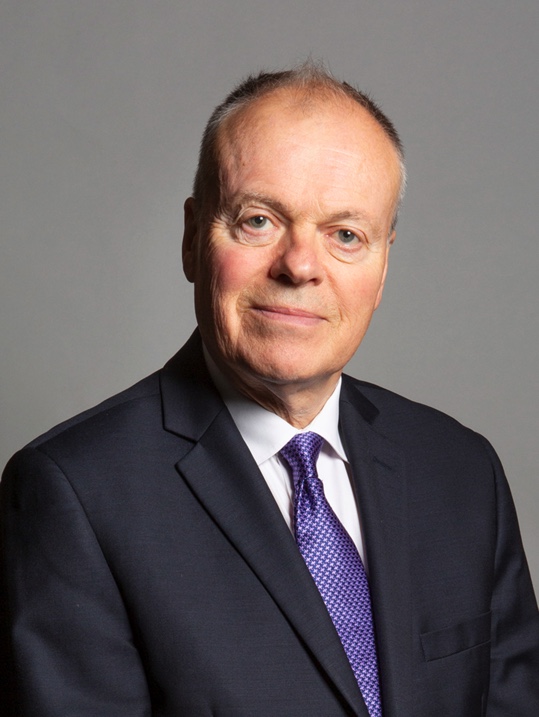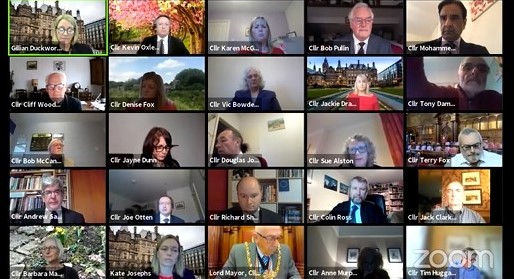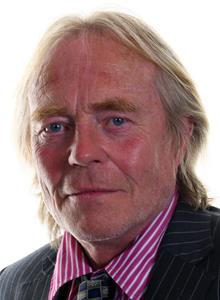
The Politics of Policing and the Power of Protest
Credit: Neill Brown Last night, a police van burned in Bristol as peaceful protest devolved into rioting, injuring several people. These events come barely a week after a series of passionate demonstrations held in parliament square, themselves sparked by the Metropolitan Police's widely condemned response to a candlelit vigil in Clapham Common. At the centre of this turbulence is the government’s new Policing Bill – but what exactly is it, and why has it provoked this response? On the face of it, the Policing Bill doesn't appear that controversial. It brings changes to time served before conditional release for serious crimes, and introduces harsher penalties sexual offenders. All of this seems eminently reasonable. But wait - there's more. The bill also includes measures that are a little more contentious - such as plans to impede peaceful protest with a maximum noise limit, and criminalising “serious annoyance” to the tune of 10 years in jail. Critics have not minced words, and the bill has been labelled an authoritarian attack on the fundamentals of our democracy. "It's pretty dreadful," said Jamie Sims, 26, who has spent 3 years as the communications officer for the Sheffield branch of ACORN community union. "Aside from anything else, it just seems very unnecessary." "I don't think the police should have any powers on protest, but they definitely don't need more. They do fine with what they've got." Jamie considers the bill a political measure, rather than something motivated by a genuine concern for public safety. "It seems like it's almost a response to Extinction Rebellion," he said. "But then, the stuff Extinction Rebellion did - supposedly, it was already illegal, because they were mass arrested." But it's not just legislative overkill. Jamie said the bill poses a threat to democracy via the limits it imposes on direct action - that is, the mode of politics which eschews parliamentary or electoral negotiations for more physical engagement with an issue, like strikes, sit-ins, or street blockades. "Direct action is really important. It's a way to even the power imbalance," he said.

Credit: ACORN Sheffield

Credit: Extinction Rebellion Sheffield

Caught Cold: Sheffield boxing’s body blow
Credit: Johann Walter Bantz Just over a year on from the last crowd-attended fight on British shores, grassroots and amateur boxing has had to come to terms with being the forgotten sport. In the week where two of Britain’s finest pugilistic exports of this century, Anthony Joshua and Tyson Fury, sign one of the biggest contracts in boxing history, UK boxing finds itself floundering as financial pressures tighten and careers hang in the balance. The riches that the two will earn win, lose or draw are colossal and the fact that such an eye-watering prize purse is on offer underlines both the sport’s popularity and its financial power. This, however, is in stark contrast to the fortunes of community boxing clubs across the UK that are struggling to stay afloat, as well as fighters who have had to put their careers on hold. Indeed, despite being boxing's spiritual home, the Steel City's gyms and fighters have suffered just as much as the rest of the country and are burdened with the same worries as their counterparts in any other town or city. Sam Bridle, a young up-and-coming boxer and Glyn Rhodes, the owner of the Sheffield Boxing Centre open up about their struggle during the pandemic. A Career on Pause

Sam Bridle in training at 26RR gym in Sheffield.
 The gym has been run for almost three decades by former lightweight boxer Glyn Rhodes MBE, who has helped to bring through some of the country's finest boxing talent.
However, despite the success enjoyed by the SBC, Glyn admits the club has not been immune to the challenges posed by the pandemic as prolonged closure has led to income loss.
"It's took a big knock, our place. We've still got to pay the rent, but how can we pay the rent if we're not getting the kids through the door and while we've had help its not the same. It seems to be a battle, a constant battle."
This loss has meant he is all the more grateful to his sponsors who always ensure the club is looked after, but for Glyn, money is not the primary concern. Instead, it is the impact the closure is having on the youngsters up and down the country who see boxing gyms as a sanctuary.
"Through all this, kids have not been able to come to the gym or play sports, so I worry there might be some damage done mentally.
"It's really worrying that, in the last year, all these facilities have had to close down. I understand why this has had to happen but it's still heartbreaking."
There is certainly light at the end of a long and dark tunnel for boxing in the Steel City, but the pandemic has truly been a sucker-punch.
The gym has been run for almost three decades by former lightweight boxer Glyn Rhodes MBE, who has helped to bring through some of the country's finest boxing talent.
However, despite the success enjoyed by the SBC, Glyn admits the club has not been immune to the challenges posed by the pandemic as prolonged closure has led to income loss.
"It's took a big knock, our place. We've still got to pay the rent, but how can we pay the rent if we're not getting the kids through the door and while we've had help its not the same. It seems to be a battle, a constant battle."
This loss has meant he is all the more grateful to his sponsors who always ensure the club is looked after, but for Glyn, money is not the primary concern. Instead, it is the impact the closure is having on the youngsters up and down the country who see boxing gyms as a sanctuary.
"Through all this, kids have not been able to come to the gym or play sports, so I worry there might be some damage done mentally.
"It's really worrying that, in the last year, all these facilities have had to close down. I understand why this has had to happen but it's still heartbreaking."
There is certainly light at the end of a long and dark tunnel for boxing in the Steel City, but the pandemic has truly been a sucker-punch.
Market Wars: The Rise of NFTs
Credit: QuoteInspector.com They've been popularised by a diverse crowd ranging from Aphex Twin to Elon Musk - but are non-fungible tokens a force for good which will level the art world's financial playing field, or the polar opposite? In the past few months, there's been a sea change in how the general population views the world's financial movers and shakers. As a response to the increase in overall CEO wealth, a band of Reddit users worked together to short the stock of GameStop, a U.S-based video game retailer. It's no surprise, then, that online culture has devised a method of financial transaction which attempts to take money out of the hands of wall street hedge fund managers and into the hands of everyday people. On March 11th, Beeple, a digital artist from South Carolina, made history: he was the first person to sell an NFT, or a non-fungible token, through major art dealer Christie's, propelling the phenomenon into mainstream Internet culture. Let's dive into the phenomenon.
What is cryptocurrency?
At its core, non-fungible tokens are a development in the cryptocurrency craze. The most popular type at the moment is Bitcoin, and the term is often used interchangeably with cryptocurrency. Basically, it's an electronic currency, similar to the debit you would have on a bank card, only it exists exclusively on a computer. It can be converted to cash, and the conversion rate tends to inflate and deflate quite rapidly, giving the business a similar feel to gambling for its users - part of the thrill comes from deciding whether to risk losing your investment or to cut your losses. It's also possible to buy and sell things online using cryptocurrency. This new type that supports NFTs purportedly democratises the online media landscape, making it so artists can easily retain copyright of their work and buyers can have proof of purchase. The thought behind the latter is that people will be able to demonstrate that they have the 'original' as opposed to a copy of the initial non-fungible token, meaning the online market is now more reminiscent of the traditional art industry.Why do people use NFTs?
Beeple has been in the game for a while. He sold his first NFT in October 2020, and since then, the phenomenon has increased considerably in popularity. Kings of Leon released their first album in four and a half years, When You See Yourself, as an NFT on 5 March. Last weekend, Aphex Twin, a Cornish electronic musician, auctioned a piece of visual art - with music by himself and visuals by Weirdcore, who has created visuals for various artists, including the Sri Lankan musician M.I.A - through Twitter. "We will spend a portion of the money on planting trees and either donating to permaculture projects or setting them up ourselves, depending on how much we get," he said.What's the issue with NFTs?
Although NFT trading is in its infancy, there are concerns about the impact they will have on the environment. Before being sold, a piece of art is converted into an NFT through a cryptocurrency called Ether, which is distributed through a Blockchain called Etherum (a Blockchain is essentially a digital ledger). It works in a similar way to an MP3 or a GIF file; the difference between an NFT and a traditional file is that the latter provides the buyer with a unique token of authenticity, proving it's the original. This is done through a process called 'Proof of Work Validation,' which requires a series of puzzles to be solved in order to validate the transaction. This process uses a considerable amount of energy and is intentionally costly: a proof of work process uses an extremely large amount of electricity, making it expensive, and is used for two reasons. The first is to deter scammers from utilising the method to steal goods (after all, the point of theft is to make money, not lose it), and the second is to ensure that both the buyer and seller have proof the purchase took place - like a shop receipt. [infogram id="double-comparison-1hxr4zx7yvdwq6y?live"] The process is controversial because of the amount of greenhouse gases it produces. A single transaction produces 62.56 kWh - equivalent to the power consumption of an average U.S household over around two days. However, Ethereum themselves claim that NFTs do not increase the cryptocurrency's carbon footprint - in fact, they claim as the method is revised and improved, its carbon footprint will decrease by 99.98%. Ethereum claims that an alternative to its Proof-of-Work method, named Proof-of-Stake, will reduce the environmental impact of trading NFTs through the service, though there is currently very little data to support this. Maxwell Ayamba, Msc, Project co-ordinator for the Sheffield Environmental Movement, said: “I’m going to speak in terms of relevance with groups i work with, with regards to knowledge and awareness of NFTs, and as a result of that, how NFTs really impact on the environment in the perception of the groups I work with. Because what I want to point out is that there are a lot of things going on that people are not aware of. If you go out on the street and you interview people… they aren’t going to know what they are. The only people aware of NFTs are people within that particular culture."Do NFTs have a future?
Much of the culture surrounding NFT sales is to do with exclusivity. After all, if you can pay slightly less for a reproduction of the same thing, there doesn't seem like much benefit to owning the original aside from retaining bragging rights. Ultimately, as it stands, the only tangible benefit for most artists - ones who aren't earning the big bucks - is that they can retain ownership of their work. The advent of NFTs is nothing more than a reproduction of the bourgeois art market in online spheres. The purveyors of NFTs need to ask themselves: is the environmental damage worth it?
Reduced bus fare for South Yorkshire’s under-21s part of £860m investment strategy
Sheffield teens and young adults will be paying less for their bus journeys after a new investment strategy was approved. Economic support in the form of reduced bus fares was promised for South Yorkshire's under-21s at a Mayoral Combined Authority (MCA) board meeting which discussed a new investment strategy for South Yorkshire this morning. The strategy, which sees the utilisation of £860m of MCA funding to help support the region's economy following the pandemic, promises an an 80p single bus fare for those under 21 in an attempt strengthen the ability of young people to access and connect to jobs and training opportunities. Mayor of Sheffield City Region Dan Jarvis said: “This is a hugely significant moment for South Yorkshire. The proposals in this paper give us real fire power to unlock growth in the economy and to support our young people. I commend the work that members and officers have done to get us to this point." Set to last for a year beginning June 21, estimates put the cost of introducing the concession in the region of £6.7m. Addressing the board meeting, Sheffield City Region Chief Executive Dr Dave Smith said: “Due to the disproportionate impact of the pandemic on the region’s young people it was felt necessary to apply additional targeting on a time-limited basis to support young people and young adults seeking to recover from the impact of the economy, on jobs and prospects." On a national level, 60 per cent of the reduction in pay rolled employees since March 2020 has been in people aged under 25, and the redundancy rate is much higher for people aged 16-24 according to the MCA's report. South Yorkshire's investment strategy is also set to spend £340m on transport and environment, housing and infrastructure, education, skills and employability and business growth and recovery.

From Croquet to Quidditch: Find out how Sheffield clubs are preparing for the return of grassroots sports
Image credit: Sheffield Hockey Club On March 29th the latest easing of lockdown restrictions come into place, which will allow outdoor sport facilities to reopen to the public. In light of this, here's a snapshot of some of Sheffield's local sports clubs to see how they are preparing to return to action and how you can join in. Croquet Eugene Chang, Chairman of Sheffield Croquet Club, said that due to Croquet being a very socially-distanced friendly sport, sales had gone up in equipment by 600% at some retailers: "It's been really good for people's mental health, that they were able to do something different to walking. We are going to be reopening at Easter, we are open for general membership. If people want to come as a small group to try it out we can provide sanitised equipment for them to use." https://www.facebook.com/SheffieldCroquetClub Football Barney Chart, President of Sheffield Union Football Club: "We plan on resuming a routine training programme from 29 March, and making sure players are available over Easter to start playing in the Brian and Judith Bradley Memorial Cup from 3 April for the first team. The second team have league fixtures to play out until the end of the season. The lads are absolutely raring to get going again with a lot of the second team players pushing for a spot in the first team. It is a great chance to get our hands on some silverware after a long time out!" Hockey Sheffield Hockey Club: "Sheffield Hockey Club is excited at the prospect of resuming grass roots sports and getting back on the pitch. We are awaiting with hope for the guidance to be issued this week from England Hockey’s conversations with the government and are putting plans in place to proceed with caution in managing our Covid protocols, which we successfully deployed last year to assure the safety of our members. I would sum it up as cautiously excited!"
Rugby Union Hallamshire RUFC: "At the moment we’re waiting on the Rugby Football Union for guidance details, the general plan so far is to start with limited contact training after the 29th March. This will involve handling drills, uncontested rucking etc. To allow players to get back to the swing of rugby. Once the May milestone passes we can play modified rugby against other clubs, June would see a return to full contact rugby with Rucks, mauls etc. It looks like rugby will be back to normal next season, at the earliest at the moment. As ever though Hallamshire will welcome anyone who wants to come take part, we run a men’s senior team (18+) and will be posting updates on training on our Facebook page as plans are confirmed." Quidditch Amit Portnoy, President of Sheffield Quidditch Club: "Once the rule of 6 is in place from the 29th of March, we will be able to hold socially distant 6 person trainings in our usual spot at the Ponderosa. If anyone wants to join, there will be links to sign up to training." https://www.facebook.com/sheffieldquidditchclub/ Tennis Jonathan Wragg, head coach at Fulwood Sports Club: "We have 3 weeks of children’s Easter camps and the normal junior programme will start again in the summer term. Our men’s and ladies teams are also keen to be back playing matches later in April. I am sure the tennis courts will be very busy with people enjoying the chance to play again. " With a host of sporting activities to choose from, those in Sheffield should be excited at the prospect of getting back out onto the pitches, courts and parks which they have sorely missed out on over the last few months.View this post on Instagram

Plans for new indoor bouldering centre in Sheffield unveiled
Plans have been put forward to turn a disused warehoused unit into a large indoor bouldering centre at in Burngreave. The project is being run by Grip UK, alongside Urbanspace Planning to make use of the abandoned space at 15 Sutherland Street, Burngreave. The company, which trades under the name 'The Climbing Hangar', is planning for a 1430 sq. metre conversion of the existing warehouse to provide a "unique leisure experience comprising a centre for climbers of all levels to practice bouldering." The Climbing Hangar have been operating for a decade, with sites in Liverpool, Plymouth, Swansea and London, and with the upcoming Tokyo Olympics debuting rock climbing as an Olympic sport, the excitement surrounding the sport is reaching new heights. Their planning application adds: "Following the success of, and demand for, The Climbing Hangar’s existing operations, the operator has identified an opportunity to open a new centre to cater for the catchment area to the east of Sheffield, where the sport is increasingly growing in popularity. The proposed use is aimed at catering for the surrounding local area." Positioned only a mile away from the city centre, and readily accessed by public transport, the proposed centre is ideally situated for its "core target audience of 16 to 45-year olds."

The proposal lays out plans to convert this disused warehouse into a 1000+ sq. ft indoor bouldering centre. Credit: Google Street View

Sheffield MP accuses Government of electoral point scoring with new levelling up funding
A Sheffield MP has lashed out at the Government for failing to provide any means to measure the success of their levelling up fund. The £4.8bn fund is intended to improve infrastructure around the UK but lacks a clear measure of impact, according to Sheffield South MP Clive Betts. "If levelling up is really to work, we need to set clear and tangible criteria to judge its success ahead of time, otherwise it will become nothing more than a political football for the Government to throw around with no impact on the real world,” he said. Mr Betts last week questioned the Parliamentary Under-Secretary, Eddie Hughes MP, on how the Government will measure the success of the the fund. Mr Hughes responded: "If we're going to determine the success of these projects, the British electorate will probably do that at the next General Election, so I look forward to seeing how that turns out." Following the exchange, Mr Betts pointed out there are multiple ways the Government could measure the fund's success, including monitoring levels of deprivation and poverty, or life expectancy. "However, it is telling the Government have no interest in any of these and it seems suggestive that this whole manifesto was just for electoral point scoring rather than improving people’s lives in communities that have been left behind,” he added. The allocation of the Levelling Up Fund has also faced criticism, with 39 of the 45 new grants revealed earlier this month going to towns with a Conservative MP. “If the Government are not going to allocate funds where they are needed most, or publish any success criteria for the projects they fund, their levelling up agenda is just noise, and a poor disguise for pork barrel politics,” Mr Betts said.

Local Area Committees approved during fraught council meeting, after “eight wasted years”
Sheffield's local communities are to be given back the power to make changes in their own areas. Sheffield City Council is to re-establish Local Area Committees (LACs) across the city "eight wasted years" after they were abolished. The proposal for seven new LACs was headed last Thursday by Labour councillors who called the motion the "first huge step in empowering our communities." However, some Liberal Democrat councillors, who also supported the introduction of the scheme, were enraged, claiming to have proposed similar schemes over the last eight years only for them to be turned down. The phrase "eight wasted years" was used first by Cllr Andrew Sangar and continued to be repeated throughout the debate by annoyed Liberal Democrat councillors.

The extraordinary meeting was held over Zoom

Sheffield Town Hall

Sheffield skyline

Sheffield councillor secures centrally monitored CCTV trial for Woodhouse community ‘scared witless’ by gang activity
A Sheffield community terrorised by gang violence is to trial a new centrally monitored CCTV system after Labour councillors gained funding. Cllr Mick Rooney has announced a 10-camera CCTV system is to be set up in Woodhouse in an effort to crack down on anti-social behaviour and crime. This comes after residents declared they had lost faith in the police and the local council following a shooting in Woodhouse earlier this month. Cllr Rooney said: “We take the situation in Woodhouse very seriously with the anti-social behaviour that has been taking place and we’re trying to put a stop it, it’s that simple. “We’ve been working on this plan for quite some time, and we’ve managed to put together something that will hopefully reassure people that we take them seriously.” The trial, which will be paid for out of the Community Safety Fund, will see the 10 cameras placed at points within the community which offer maximum coverage, the feed will then be sent live to a monitoring room from which operators will notify the police of any suspicious activity. Street Wardens with the power to issue on the spot fines will also be introduced to the area.
Councillor Mick Rooney has gained funding to introduce a centrally monitored CCTV system in the Woodhouse area. This... Posted by Woodhouse Ward Labour Councillors on Friday, 19 March 2021

Ed Cosens of Reverend and the Makers talks lockdown, Leadmill and live music’s return
Credit- Ed Cosens Amidst a difficult year for the music industry, Ed Cosens of Reverend and the Makers talks about his solo project, the impact of the pandemic on artists and his excitement for the return of live shows. “I’ve been doing gigs since I was in school- the last time I didn’t play live for a year I was probably 13.” It’s safe to say the past 12 months have been strange for Ed Cosens. As guitarist for Sheffield’s own Reverend and the Makers, well-renowned for their raucous performances, the stage has become like a second home. The pandemic has closed venues for now, but even more frustratingly, it has forced Cosens to twice postpone the release of his solo album, Fortunes Favour. “The album was recorded just before lockdown, so that was done- getting the album out there is what got kiboshed. “It’s really hard at times, waiting to release something that you wrote three years ago and recorded 18 months ago- it’s a long time to wait to put it out there and show people. It’s been very challenging but thankfully we are nearly at the end of that road and the next part of the journey can begin.”

Credit- Ed Cosens

Fargate and High Street to receive £15m to save Sheffield’s struggling retail scene
Sheffield's historic high street will be receiving £15,817,001 in funding to restructure the city's struggling retail economy.
Sheffield Fargate and High Street were one of only 15 areas across England that would be receiving the full amount of funding requested under the Future High Streets Fund from the Ministry of Housing, Communities and Local Government.
A new cultural hub called 'Events Central' will be opened to provide a space to host exhibitions and events, as well as a café and a co-working space. The council believes this would create an environment for an experience that would attract visitors to spend more time in the city centre.
The report claims the proposal can attract an additional "110,000 visitors to the City Centre, and create up to 505 jobs."
The council will also be implementing a ‘Front Door Scheme’ to work with landowners through grant assistance and open-up new direct front door access to upper floors to enable their conversion for new uses.
Fargate and High Street account for one-tenth of city centre retail space, with 103 retail and leisure units. A year ago, vacancy rates stood at just under 25%, above national trends. However, vacancy numbers have increased due to closures under the impact of Covid-19.
Proposal for Fargate:
 Proposal for High Street:
Proposal for High Street:


Five books which detail the East Asian and Southeast Asian experience
As Asian hate crimes soar, understanding the community has never been more important. Last week’s events in Atlanta sent a wave of terror through the ESEA community, both in the US and around the world. A man’s shooting spree across massage parlours in Georgia killed eight people, six of whom were women of Asian descent. USA Today unveiled the personal stories behind each of the tragic victims, who were hard workers, dedicated mothers and business owners. This racist hatred is not new, nor is it only prevalent in the US. According to the advocacy group End the Virus of Racism, there has been a 300 per cent increase in hate crimes towards people of East and Southeast Asian heritage since the start of the pandemic. In February 2020, international Singaporean student Jonathan Mok was assaulted so badly he needed surgery. In broad daylight. This escalation of attacks led to the trending hashtag #StopAsianHate – both a collective gesture to show solidarity within the ESEA community, and a plea to the world to lend support in the anti-racism movement. These hate crimes, spurred on by racist rhetoric from politicians like Donald Trump, project Asians as monolithic. Stories by people of Asian heritage, from East and Southeast Asia to the Pacific Islands, provide a much-needed window into their lives, emotions and experiences. This piece brings to the fore books which illuminate what it is to be East and Southeast Asian, dispel the clichés and change the cultural narrative – currently so saturated with outdated stereotypes – one story at a time. To read them is to begin a journey of allyship, which is needed now more than ever.
View this post on Instagram
Go Home! – edited by Royan Hisayo Buchanan, foreword by Viet Thanh Nguyen
This collection of works explores the meaning of "home" through an array of fiction, poetry and memoir. Published in collaboration with the Asian American Writers' Workshop, the book complicates the idea of home as a physical place, and instead shows how its meaning can be found in food, relationships, journeys and language. While this reflection on home is a universal human concern, it becomes particularly dire for those whose identities make them vulnerable to the threat of never belonging. Like many Asian immigrants, our experience with racism has traditionally occurred through being painted as the perpetual foreigner, the yellow peril or brown terror, with unbreakable ties to a land of origin. The beauty of a home in storytelling is that it allows us to create a multiplicity of homes which no one can completely take away.
Image credit: AK Press
Ru – Kim Thúy
On a starless November night in 1978, crowds of Vietnamese people, including Kim Thúy, huddled aboard a storm-battered boat bound for Malaysia. Crouched in darkness, refugees became numb to the smell of urine, sweat and fear that engulfed them. Night and day became indistinguishable. Thúy was ten years old when the Vietnam War ended with the fall of her hometown Saigon – old enough to recall the deathly silence that besieged the once-lively capital, and the transformation of red gao blossoms into bomb craters. Following the communist takeover of Saigon in 1975, a million so-called “boat people” like Thúy took to the oceans, braving the threat of not only starvation, but rape and murder at the hands of pirates. Ru is a work of autofiction, blending the author's lived experience with fiction. Readers witness the immense hardships faced by the narrator Nguyen An Tinh, who, like Thúy, journeys from Vietnam to Canada, struggles to integrate into Quebec society, returns to Vietnam as a lawyer, and experiences motherhood. Watch the video below to hear more from the author. https://www.youtube.com/watch?v=Oq0wrDVXS9EAll You Can Ever Know – Nicole Chung
On Earth We're Briefly Gorgeous – Ocean Vuong
“‘On Earth We’re Briefly Gorgeous’ is a letter from a son to a mother who cannot read," the blurb says. Expressing the pain and agony of the Asian experience is not just challenging in the wider world, it can be a struggle within our own families and communities too. In the Vietnamese-American author's debut novel, Ocean Vuong captures the emotions and sacrifices of a poor immigrant family – along with the trauma of that journey handed down multiple generations – which are almost impossible to explain. The book begins during the narrator Little Dog’s childhood, as he collects fractured memories of his mother to share with her. Vuong, who was born in Ho Chi Minh City before immigrating to Connecticut when he was two, untangles the threads of queerness, class, drugs, and depression which shadowed his upbringing. Each beautifully crafted sentence reads like poetry, inching us closer to Vuong's voice, his feelings of shame and desire.
Portrait of Ocean Vuong in the playground behind the house where he grew up in Glastonbury, Connecticut in 2019. Image credit: The Atlantic.

